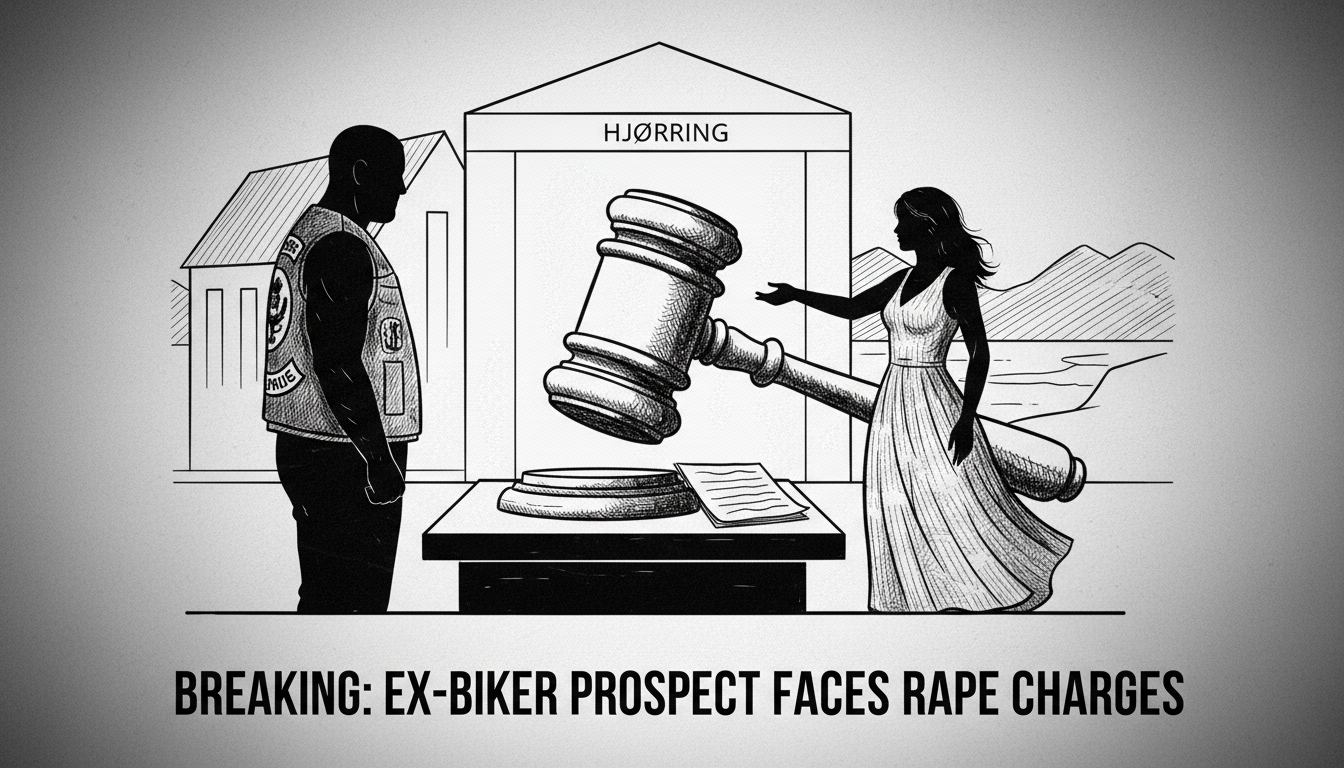A dramatic courtroom confrontation continues in Hjørring as a former biker prospect stands accused of multiple violent crimes against his ex-girlfriend. The 31-year-old defendant faces charges of three rapes, psychological abuse, and stalking. His former partner concludes her testimony today after previously describing two days of detailed allegations.
The case reveals starkly contrasting accounts of the same relationship. The defendant describes a stormy romance with experimental sexuality and weekends involving alcohol and drugs. His ex-girlfriend portrays a relationship dominated by fear and strict control. She testified about repeated violence and threats throughout their time together.
Today marks a critical moment in the trial as the defense lawyer Miriam Sigsgaard finally questions the accuser. This cross-examination could determine the case's direction. The defendant admits to stalking and some violence but denies all rape charges and psychological abuse allegations.
The case carries additional complexity through the defendant's background. He previously served as a prospect for Bandidos, the now-banned motorcycle club. Prosecutors also charge him with continuing club activities during its temporary prohibition, which he denies.
Denmark's legal system treats domestic violence cases with increasing seriousness. Recent years show growing awareness about psychological abuse and coercive control in relationships. This case tests how courts handle complex intimate partner violence claims where evidence often relies heavily on witness credibility.
Court observers note the particular challenges when former partners present completely different realities. The Hjørring court must weigh conflicting testimonies while considering patterns common in abusive relationships. Victims often hesitate to report immediately, while perpetrators may minimize their actions.
The outcome could influence how Danish courts handle similar domestic violence cases involving organized crime connections. International readers should understand that Nordic countries, despite their progressive reputations, continue addressing domestic violence through evolving legal approaches.
What makes this case particularly noteworthy involves the intersection of biker culture and domestic violence allegations. Such combinations present unique challenges for Nordic legal systems known for generally low crime rates but ongoing struggles with organized crime elements.
The trial continues as the court evaluates whether the evidence supports the serious charges beyond reasonable doubt. The case represents broader societal conversations about relationship violence and accountability.

